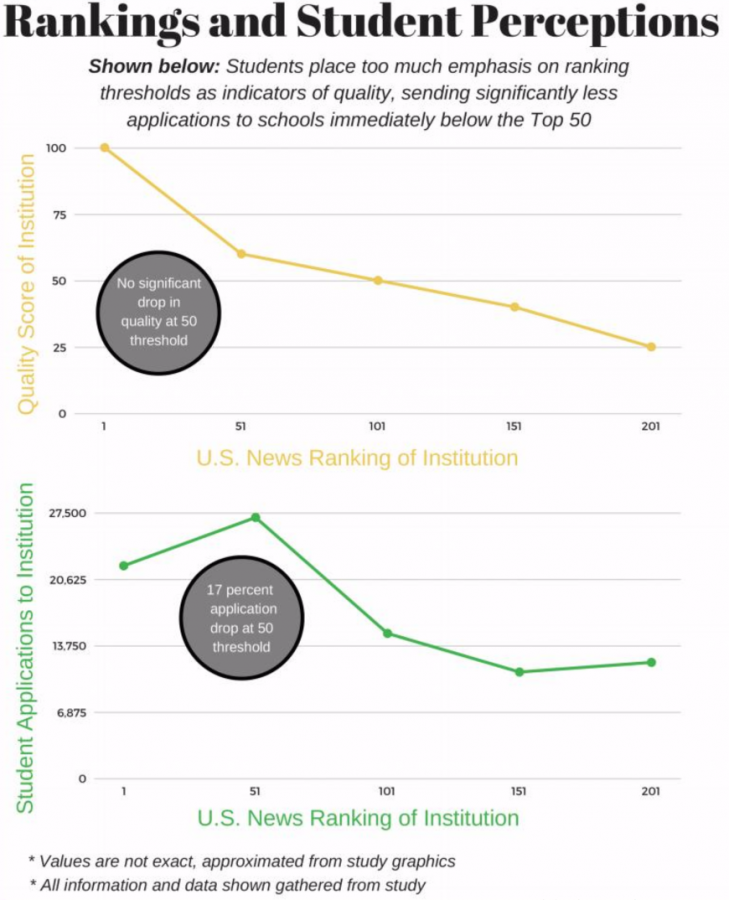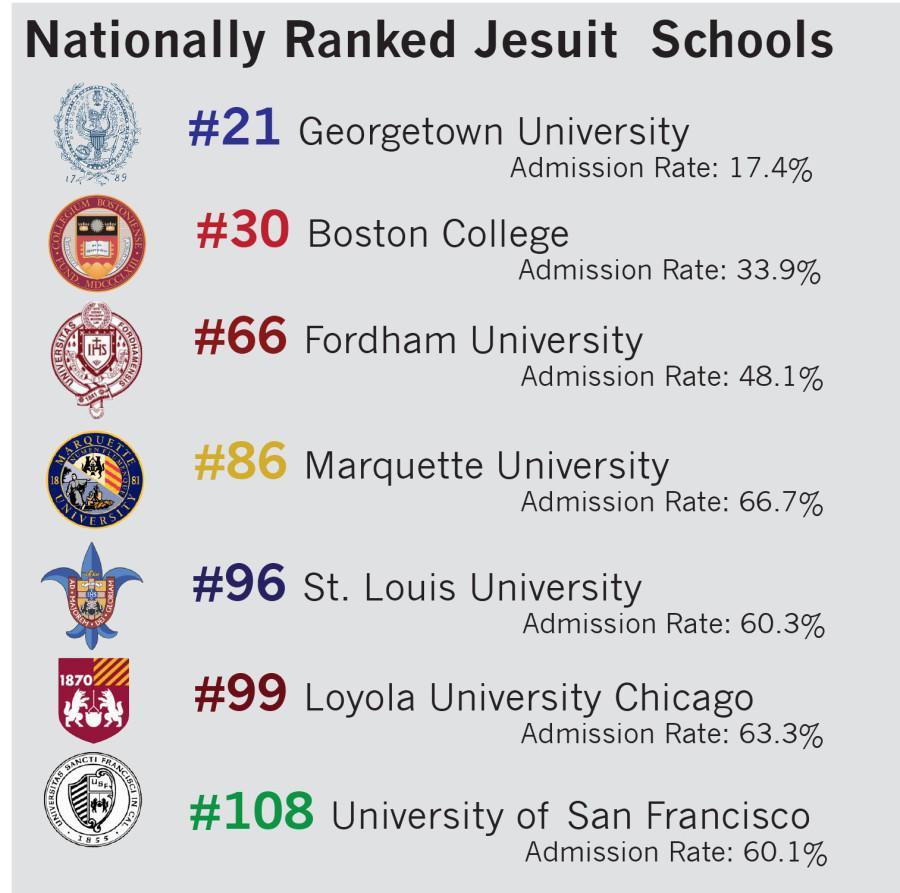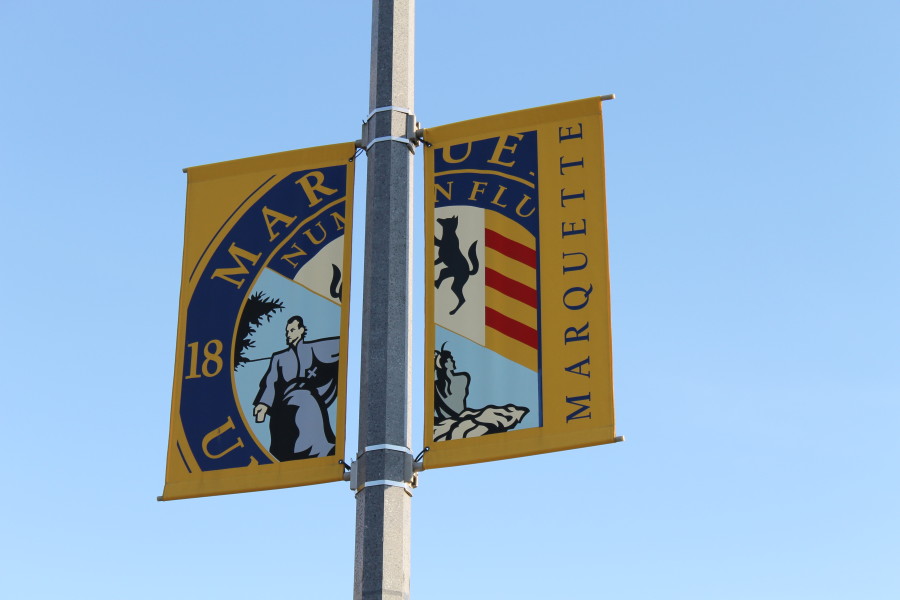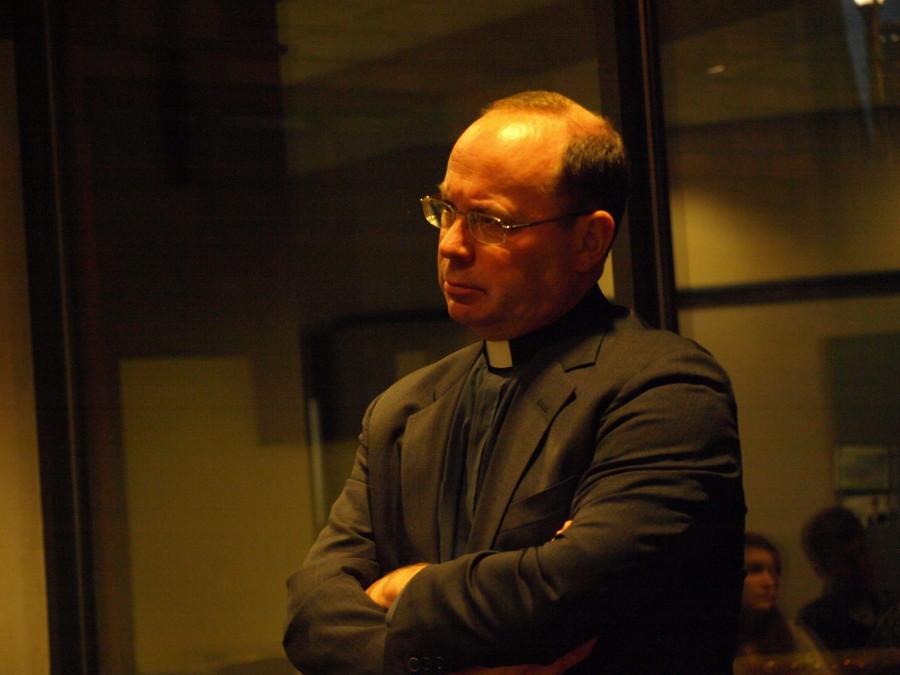The U.S. News & World Report’s annual college rankings were released last week, and Marquette held its position at 86. The rankings have long been marketed as a symbol of prestige and quality by colleges and universities across the country. But do these rankings really deserve the weight they are given? Is it even possible to rank colleges?
It is nearly impossible to settle on the criteria for a top college. While some believe that a top college or university should help secure a high-paying job after graduation, others believe that they should help students explore academic pursuits, and still others maintain their own unique standards for what makes a top college.
The U.S. News & World Report weighs seven factors to varying degrees: Graduation and retention rates (22.5 percent), undergraduate academic reputation (22.5 percent), faculty resources (20 percent), student selectivity (12.5 percent), financial resources (10 percent), graduation rate performance (7.5 percent) and alumni giving rate (5 percent).
The problem is that not a single one of these indicators reveals anything about the day-to-day life of a student at a given college. Alumni generosity, financial resources and good graduation rates are important and help schools function, but do they really have a major impact on the student experience?
How do you even calculate college reputation? It turns out US News utilizes a survey of 2,200 college counselors from across the country as well as an academic peer assessment completed by the college’s faculty and administration. Ignoring the obvious opportunity for bias in this category, it seems kind of odd that these two groups are the arbiters of a college’s national reputation. If attending a reputable college is as necessary to finding post-grad employment as people seem to think, then it seems like employers would be better judges of a college’s reputation than the college itself.
Despite the idea that collegiate reputation is important when securing a job, there is little evidence to support this. A 2012 Chronicle of Higher Education survey found that employers ranked college reputation lowest on their list of attributes in evaluating graduates for hire. In reality, the best opportunity a college provides in terms of landing a job is through networking and alumni contacts, both of which are almost impossible to analyze, let alone rank.
Completely lacking from this ranking process is any perspective from students. Criteria more helpful in choosing a school, like the administration’s responsiveness, campus safety and funding for student organizations, are put aside in favor of arbitrary metrics like reputation and selectivity. Even if you were to include these criteria, you still would not be able to create an accurate top-colleges list.
Maybe it is best just to take the rankings for what they are — a vague portrait of a college or university’s national prestige based primarily on its selectivity, ability to keep and graduate students and a survey of high school college counselors and university employees.
Instead of focusing on attending the highest ranked school possible, students and parents should have a frank discussion on what their priorities are and what they can realistically afford. Investigating the aspects of the college experience that students actually value is paramount. In college, the people you meet and experiences you have will last far longer than the effects of its selectivity and prestige.








Concerned Alum • Oct 20, 2016 at 5:50 pm
While I agree with the general sentiment expressed in this piece, I still think Marquette could play the rankings game better. Instead of striving to become more selective they purposely went in the opposite direction this past year with a 40% decline in applications and 77% acceptance rate. Well if your applications go down by 40% of course you’re going to have to accept a much higher percentage of students just to fill the class without having to resort to budget cuts and laying faculty and staff off. It seems the administration doesn’t believe having an acceptance rate that high will have a negative impact on Marquette’s national ranking. They’re wrong! It will over time! The BOT needs to address this immediately!